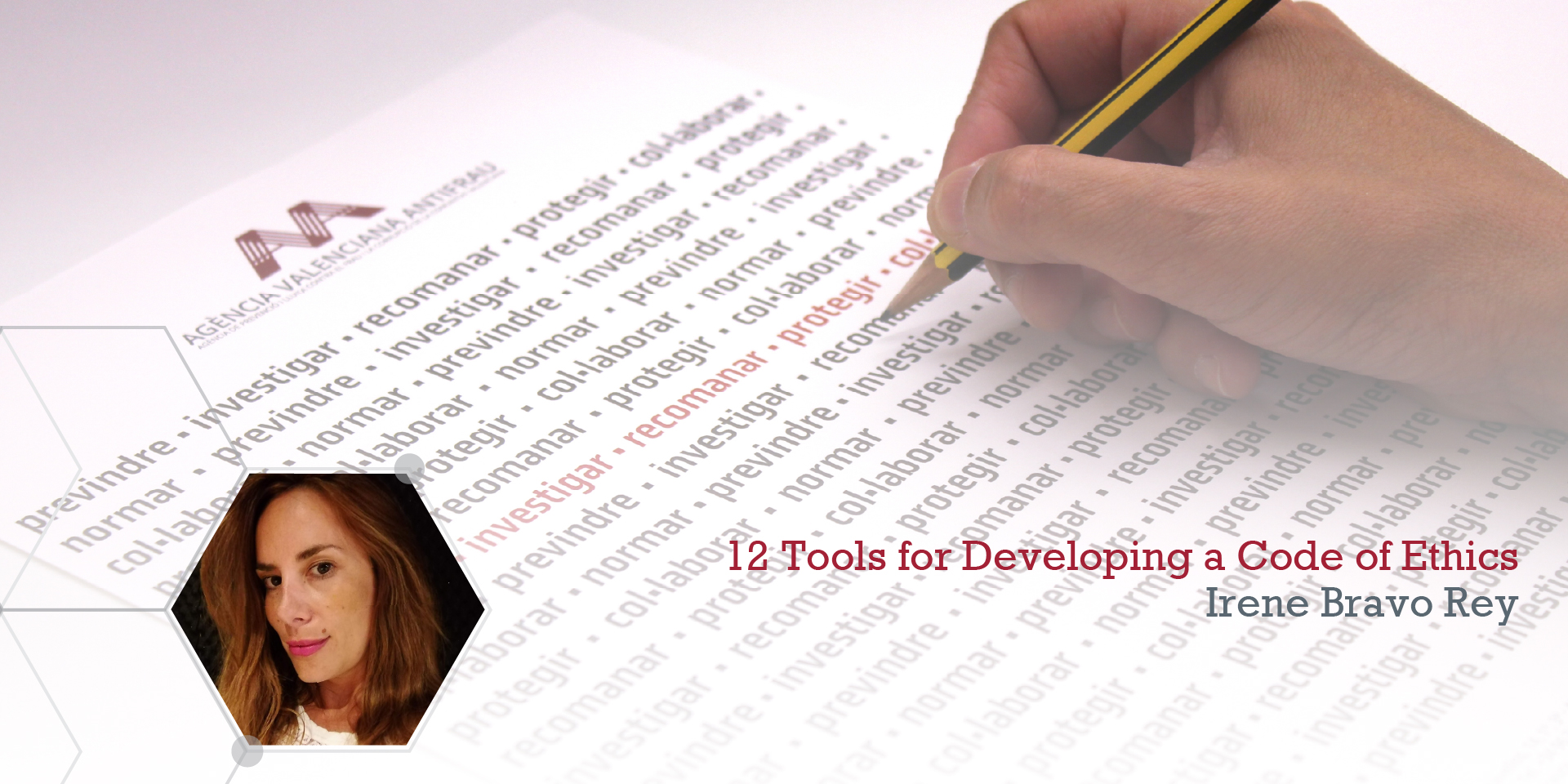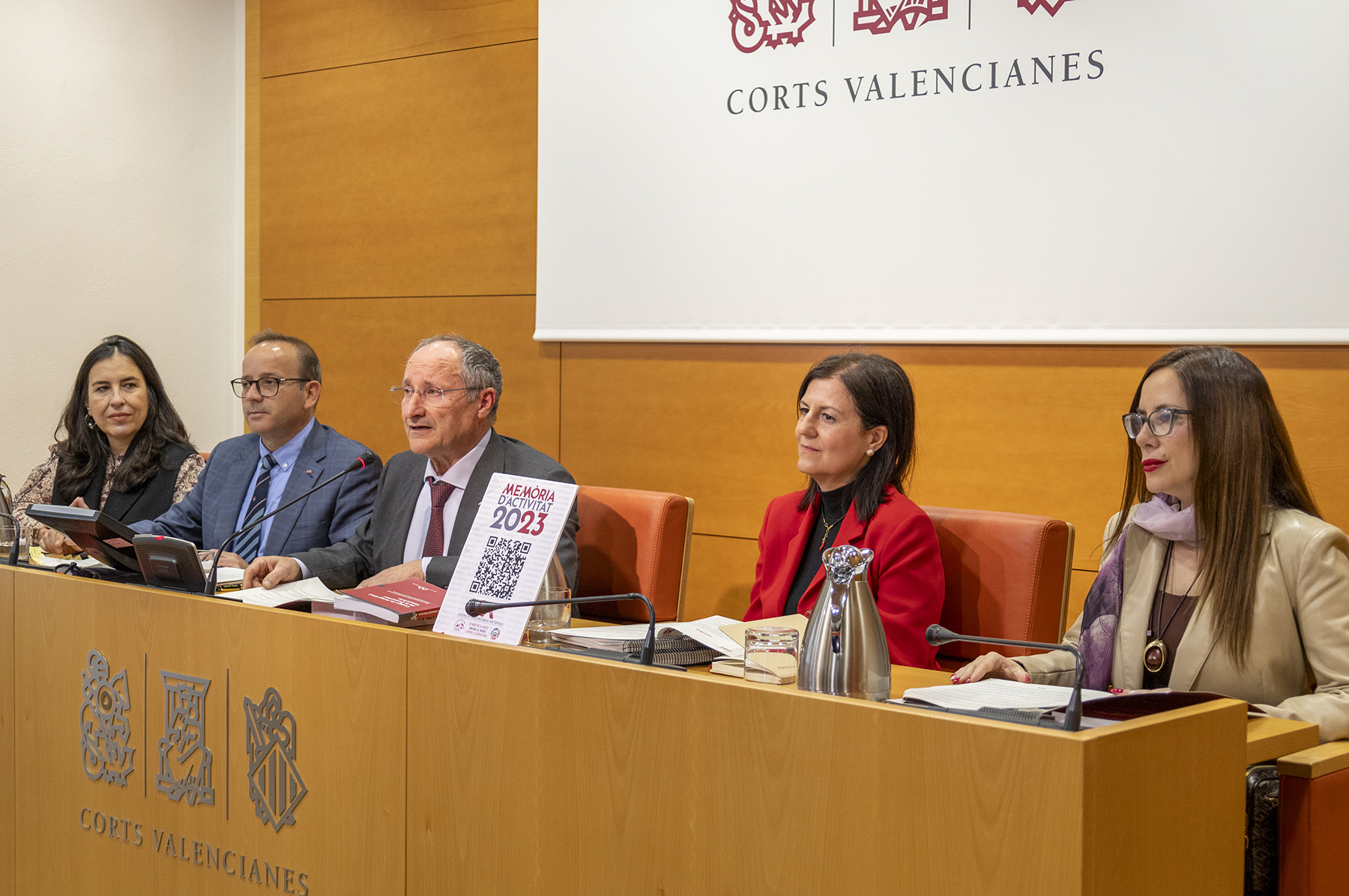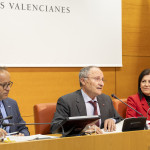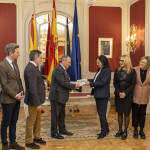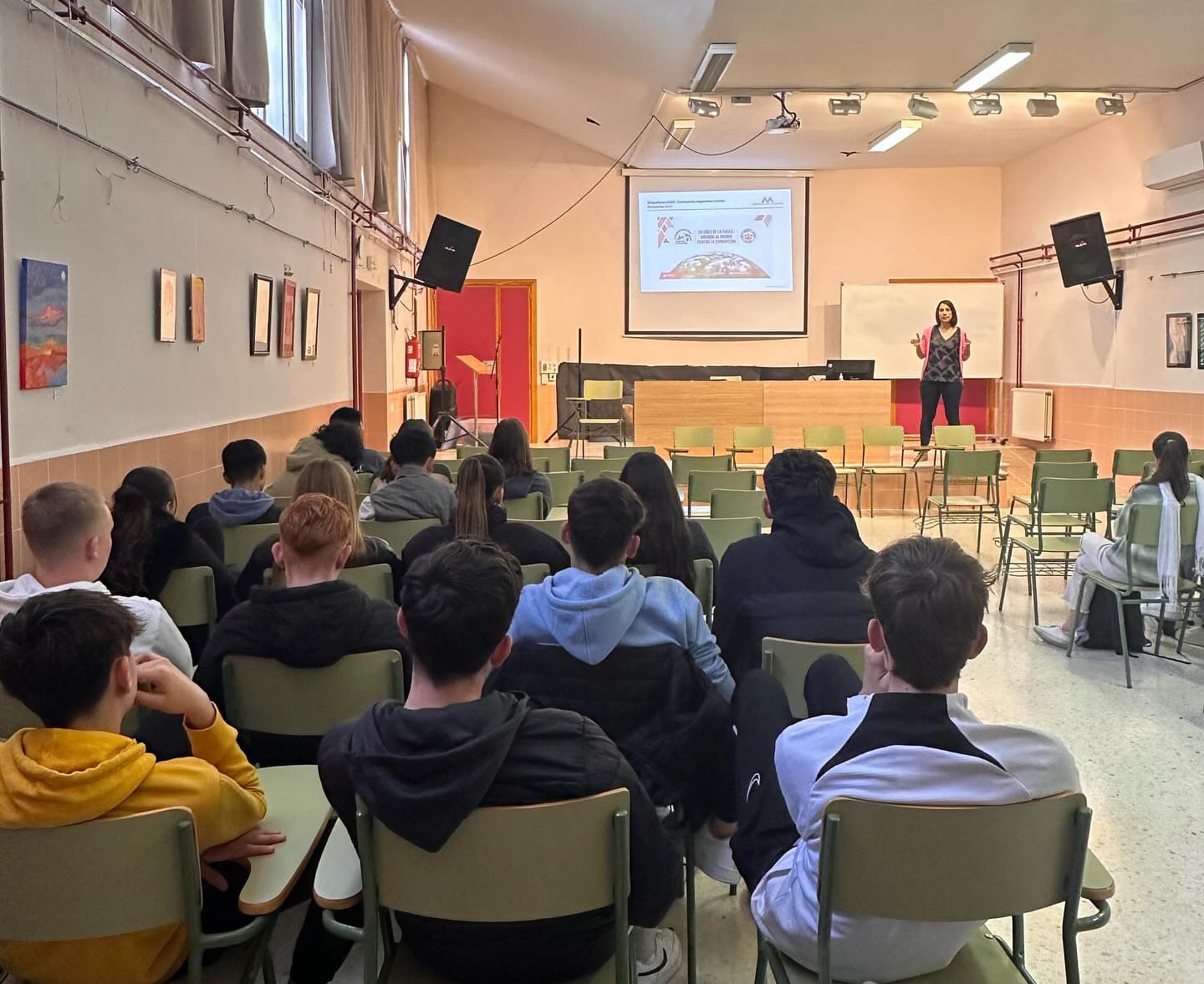The approval of a code of ethics is one of the essential preventive measures of the well-known “anti-fraud cycle” and also an obligation imposed by Law 1/2022, of 13 April, on Transparency and Good Governance of the Autonomous Community on all public administrations.
Within the framework of an agreement between the Generalitat Valenciana, the Provincial Councils, the Valencian Federation of Municipalities and Provinces, the University of Valencia and this Agency, on March 12, 2024, I gave the presentation “How to develop a code of ethics so that it is a true framework of public integrity”. And the truth is that few are, limiting themselves to being a “copy-paste” of the principles and duties already regulated and imposed by the regulations or the result of an assignment to private entities that ends with their delivery, without worrying about their operation.
I present here the document “12 tools to develop a code of ethics”[1] and I invite you to use it in your “homes” to develop your own code of ethics using this “toolkit” with references, examples and guidelines to ensure that every public servant exercises the position or performs his or her functions without deviating from the general interest:
1.– Legal references and key concepts of the code: count on our Code of Integrity of the Valencian Community[2], which summarizes and systematizes in a general and specific way (by areas of practice) the aspects related to integrity.
2.– Support to establish specific reinforcement mechanisms in the areas of practice of municipal competence: consult our Manual “The exercise of public office with integrity” [3]to make use of keys, precautions and useful procedures for its design, and the models attached to our AVAF Guide “The Public Integrity Plan: roadmap and facilitating annexes”, among others.
3.- Limits inherent to the nature of the code as an internal instrument of self-regulation, without being able to innovate sanctions, reserved to the Law.
4.- On the recipients of the code: both senior officials and public employees of any kind, with extension of provisions for contractors and other recipients of public funds. This is the case of our Code, approved by Director’s Resolution No. 82 of 10/02/2022.
5.- Guidelines for activating the participatory and public process of drafting the code that involves all the recipients of the code and best practices on the involvement of governing bodies.
Examples of principles and values for consideration by each institution, with additional materials and references.
7.– The gift policy: general rule of non-acceptance, examples of courtesy uses and financial limits, forbidden gifts, record-keeping models, return policy, recourse to the OECD “GIFT” list.
8.- Elements of the code to detect, prevent and address risks contrary to integrity such as information leaks, conflicts of interest and lack of planning: regulations, examples of procedures, orientation questionnaire for their detection, practical situations of conflict of interest and irregularities, as well as mechanisms to be applied in the code and its extension to third parties (“two don’t argue if one doesn’t want to”). Possible use of the AVAF Visual Didactic Manual “Conflicts of Interest in the Key of Public Integrity”.
9.- Responsibilities for possible irregularities based on participation in decision-making processes. Guidelines and reference to the Code of Integrity cited above.
10.- Necessary provision for training in the code: the use of the AVAF’s YouTube channel.
11.- The ethics committee as an advisory body and receiver of complaints for non-compliance with the code. Examples of its functions and the regulation of the mailbox.
12.- The code as a living instrument: the need to monitor and update it to ensure its application. It’s not enough to “approve it and put it in the drawer.”
From the AVAF we hope that the document will be useful to advance in the important challenge of planning and managing public policies with integrity.
Do not hesitate to contact us if you have any questions at the following email: prevencion@antifraucv.es.
Irene Bravo Rey, Director of Prevention, Training and Documentation at the AVAF.
[1] https://www.antifraucv.es/wp-content/uploads/2024/03/12_herramientas_Codigo_Etico__.pdf
[2] https://www.antifraucv.es/codigo-de-integridad/
[3] https://www.antifraucv.es/recomendaciones-guias-y-manuales/


